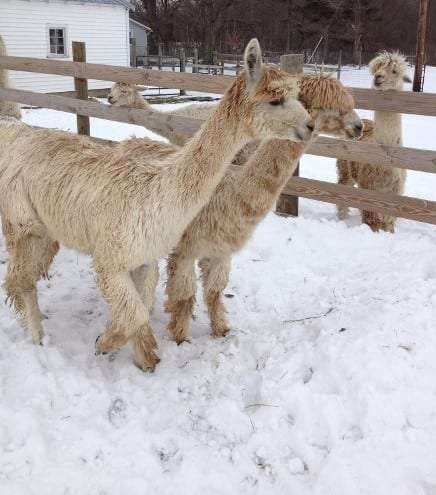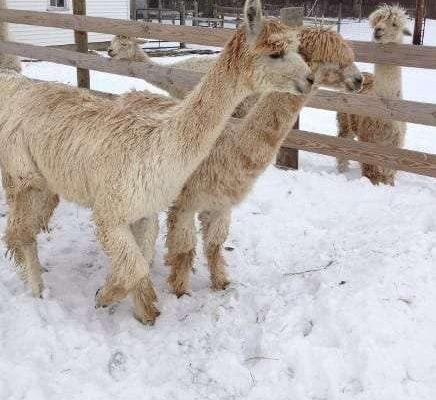
In this article, we’ll explore essential care tips for both summer and winter. So, picture yourself sipping on a warm cup of coffee while we chat about how to provide the best possible environment for your alpacas. We’ll cover everything from keeping them cool during scorching summer days to ensuring they stay snug and safe in the chilly winter months. Let’s dive into the world of alpaca care!
Summer Care Tips for Alpacas
When summer rolls around, alpacas need a little extra TLC to handle the heat. They’re covered in thick fleece, which might make you wonder how they cope with high temperatures. Here’s the thing: they’re actually quite adaptable, but it’s our job to help them manage that fleece and stay cool.
First off, shearing their fleece during the warmer months is crucial. This isn’t just a fashion statement—it’s about their comfort, too! Alpacas typically need to be sheared at least once a year. Most owners choose to do this in late spring or early summer. When you shear them, you remove a significant amount of wool, which can lower their body temperature by a few degrees. Plus, fresh fleece means their coats will grow back healthier when cooler weather arrives.
Another essential aspect of summer care is providing shade and plenty of water. Alpacas can easily overheat, so having access to shaded areas where they can retreat is vital. Think of it like having a cool canopy in your backyard on a hot summer day. Also, ensure their water supply is fresh, clean, and plentiful. It’s like their personal oasis on a warm afternoon, helping them stay hydrated and refreshed.
Feeding During the Summer
Summer is also a great time to reevaluate your alpacas’ diet. You might be wondering how their nutritional needs change with the season. In warmer months, alpacas tend to eat less hay, especially if there’s lush grass available for grazing. If you have pasture, make sure it’s well-maintained, as fresh grass can be a treat for them!
Consider providing supplements rich in minerals and vitamins, especially if their diet consists primarily of grass. This way, you know they’re not missing out on any essential nutrients. Keeping an eye on their body condition score is also a good idea. If they seem to be losing weight or looking a bit too thin, you might need to adjust their feed. After all, you want your alpacas to thrive, not just survive.
Winter Care Tips for Alpacas
When winter arrives, it’s time to shift gears and think about how to keep your alpacas warm and cozy. Just like us, chilly weather can take a toll on them if they’re not properly cared for. Thankfully, there are some straightforward methods to ensure their comfort through the cold months.
One of the first things to consider is proper shelter. Alpacas are quite hardy animals, but they do need a windbreak to shield them from harsh winter elements. A simple three-sided shelter can do wonders, allowing them to stay out of the wind and snow. Think of it as a cozy cabin in the woods—something that feels safe and snug.
Along with shelter, you should also monitor their bedding. Deep bedding made of straw or shavings can help insulate their living space and keep it dry. Wet bedding can lead to health issues like pneumonia, so make sure to replace it regularly to maintain a clean and warm environment.
Feeding in Winter
The winter months often mean alpacas require a bit more food. In colder seasons, they burn more energy to keep warm, which means their caloric intake should increase. Offering more hay during this time ensures they get the necessary nutrients while keeping their bellies full.
You should also consider adding a grain supplement if they seem to need extra calories. This change can be crucial, especially in harsh winter weather when they may need that extra boost to maintain body temperature. Just remember to make any dietary changes gradually to avoid upset stomachs.
Regular Health Checks
Regardless of the season, keeping an eye on your alpacas’ health is paramount. Regular health checks, including monitoring their weight, fleece quality, and overall behavior, can help catch any potential issues early.
During summer, watch for signs of heat stress, such as excessive panting or lethargy. Conversely, in winter, keep an eye out for any signs of cold stress, like shivering or refusal to eat.
Routine vaccinations and deworming treatments are also essential components of an alpaca’s healthcare plan. Schedule these with your veterinarian to ensure that your furry friends are protected year-round. Just as you wouldn’t skip that annual check-up for yourself or your kids, your alpacas deserve that same level of care!
Social Needs
Alpacas are highly social animals, and meeting their emotional needs is just as important as meeting their physical ones. They thrive in herds, so having at least two alpacas is ideal. Think of them like your quirky roommates—they need companionship to feel happy and secure.
In both summer and winter, ensure they have opportunities for social interaction. You can set up play areas or even engage in gentle training exercises. Whether they’re playfully chasing each other around or gently nibbling at your jacket, a little interaction goes a long way in keeping their spirits high.
Regularly spending time with your alpacas helps strengthen your bond with them. It’s like building a friendship—you learn each other’s quirks and preferences. Plus, this bond makes handling them easier and more enjoyable.
Grooming Year-Round
Grooming isn’t just a seasonal task; it’s an ongoing commitment. Regular grooming helps maintain their fleece quality, prevents matting, and promotes healthy skin.
In the summer, you might be brushing more often to remove excess fleece and debris. This helps keep them cool and comfortable. In the winter, you’ll want to focus on checking for any skin issues or external parasites.
Grooming is also a fantastic opportunity for bonding. Just like getting your hair styled can feel like self-care, alpacas enjoy this attention. Plus, it allows you to inspect their bodies for any health concerns.
The Importance of Staying Informed
Finally, staying informed about alpaca care through the seasons is crucial. There’s always something new to learn! Participating in local alpaca groups or online communities can be a great way to share experiences and gather tips.
You might find that other owners have discovered unique solutions for common problems. Remember, there’s no one-size-fits-all approach when it comes to animal care—what works for one owner may not work for another. Embracing flexibility and ongoing education ensures you’re providing the best possible care for your furry friends.
In summary, caring for alpacas through different seasons is a fulfilling journey. It demands attention and dedication, but the rewards are worth every effort. By understanding their needs in summer and winter, you can create a safe, happy, and healthy environment for these amazing animals. So, grab a warm drink, head out to the pasture, and enjoy every moment spent with your precious alpacas!

